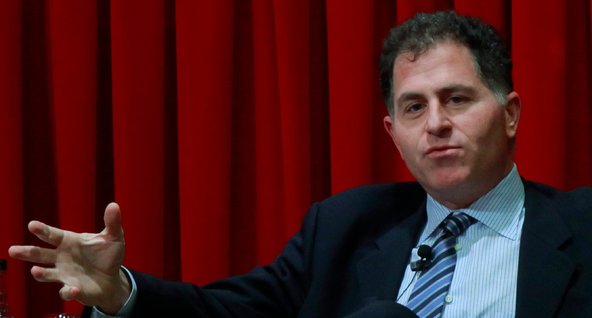“This was the last circumstance anyone would want,” Ryan said Saturday of Henry’s purchase of The Globe and other media properties from The New York Times Company for $70 million. “It’s nothing anyone would wish. It’s scary, to say the least, for all involved.”
The news that Henry, the principal owner of the Boston Red Sox, was acquiring The Globe, New England’s largest newspaper, resonated most profoundly in its sports department, where this reporter worked for many years.
“We don’t know what the new situation is going to be in terms of hierarchy, but I would hope to be able to continue to cover the Red Sox the way we always have, “ the sports editor, Joe Sullivan, said.
Acknowledging the potential conflict of interest, Sullivan said, “It will be there, hanging in the air.” He said the newspaper might need to include disclaimers when writing about Henry, as it did when The Times had an ownership stake in the team for 10 years. The Times sold its final stake in the group in 2012.
Dan Shaughnessy, The Globe’s lead sports columnist, has written critically about Henry since he became the principal owner of the Red Sox in 2002.
“There’s an inherent conflict of interest which no one can do anything about,” Shaughnessy said. “All we can hope for is that everyone is allowed to do his job professionally and that we are able to keep our independence.”
Shaughnessy and the former Red Sox manager Terry Francona wrote a book, “Francona: The Red Sox Years,” which detailed Francona’s ugly exit from the team after its collapse in September 2011. The book was highly critical of the Red Sox ownership group, and Shaughnessy said it was “not exactly a party-starter” for Henry.
In his Globe column on Saturday, Shaughnessy, tongue-in-cheek, told his readers that “John Henry’s greatness has been vastly underappreciated.”
Henry is the principal owner of the Red Sox and Fenway Park, and his Fenway Sports Group owns 80 percent of the New England Sports Network as well as the English soccer club Liverpool and a Nascar Sprint Cup team. The Miami Heat’s LeBron James is a minority stakeholder in the sports group.
The Red Sox have received mostly positive coverage in The Globe since Henry’s group bought the team. Much of that is because of the team’s success; the Red Sox won the World Series in 2004 (ending an 86-year drought) and again in 2007. But there were occasions when Globe coverage appeared to be a bit over the top, as in July 2007 when the acquisition of Kevin Garnett by the Boston Celtics was paired equally on the front of the Globe sports section with the Red Sox’ acquisition of the over-the-hill reliever Eric Gagne.
The team’s stunning collapse in September 2011 was followed by a Globe investigative piece by Bob Hohler, revealing that pitchers John Lackey, Josh Beckett and Jon Lester had been eating fried chicken and drinking beer in the clubhouse during games. Hohler also wrote that management had concerns that Francona’s deteriorating marriage and his use of painkillers may have affected his performance.
In a radio interview at the time, Henry said of the article, “It’s reprehensible that it was written about in the first place.”
Henry would now be in a position to kill such an article, which concerns Ryan, who retired from The Globe in 2012 but who has a verbal agreement to write up to 40 columns in 2013.
“Anyone in this situation has to look at it with a great deal of trepidation,” Ryan said. “It’s uncomfortable and it puts the Globe sports department, especially the Red Sox writers, in a potentially uncompromising position.”
Gordon Edes covered the Red Sox and baseball for The Globe from 1997 to 2008. He recalled the abuse that Chicago Tribune writers took when their newspaper owned the Chicago Cubs, adding: “But I think this is different. This isn’t the newspaper owning the team. This is the team owning the newspaper.”
Edes, who now covers the Red Sox for ESPNBoston.com, added, “As someone who competes against The Globe, it is going to be very interesting to see how this all plays out. “
Edes said he did not receive preferential treatment from the Red Sox when he was at The Globe and The Times had an ownership stake in the team.
“I wish I did,” he said. “But this is different. If I’m him, I’m going to make sure my newspaper gets the story.”
Among those weighing in on the conflict of interest issue was Dan Kennedy, a journalism professor at Northeastern University. In a blog item that ran on The Huffington Post, Kennedy wrote, “The real issue is not how The Globe covers the Red Sox as a baseball team but rather how it manages the tricky task of reporting on a major business and civic organization that’s run by the paper’s new owner.”
Under Henry’s stewardship, the Red Sox cut a favorable licensing deal with the City of Boston to use the streets surrounding Fenway Park on game days, making “tens of millions of dollars.” The Globe reported on this sweetheart deal earlier this year. Would Henry allow such a piece to run as the newspaper’s owner?
Kevin Paul Dupont, The Globe’s Hall of Fame hockey writer, said he was “among those who want the business to be saved and resurrected, and I hope he’s the guy.”
“We’ve all been looking for someone who has the plan,” he said of Henry. “I hope it’s him.”

Article source: http://www.nytimes.com/2013/08/04/sports/red-sox-owners-purchase-of-boston-globe-leaves-journalists-wondering.html?partner=rss&emc=rss

